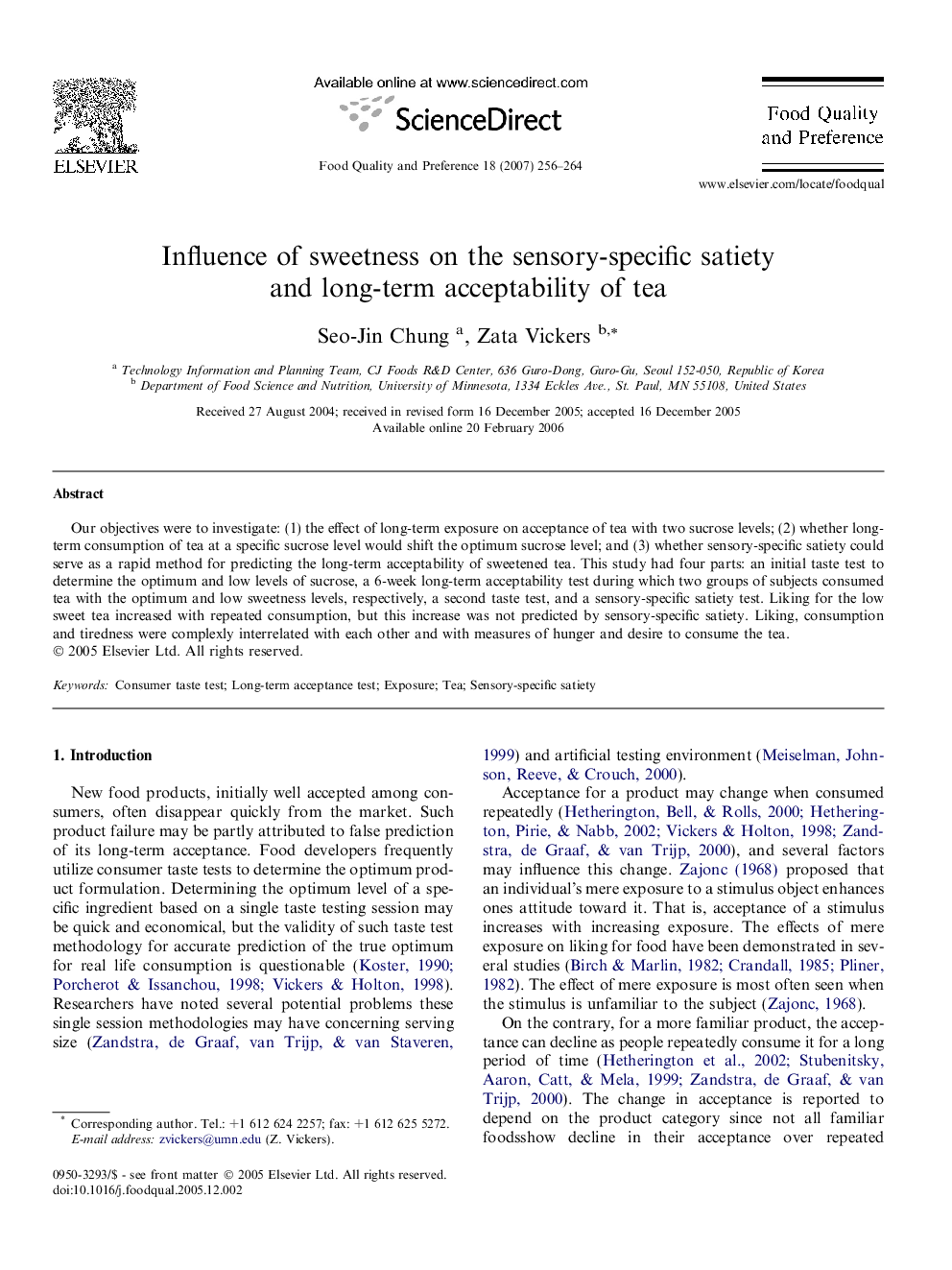| Article ID | Journal | Published Year | Pages | File Type |
|---|---|---|---|---|
| 4318162 | Food Quality and Preference | 2007 | 9 Pages |
Our objectives were to investigate: (1) the effect of long-term exposure on acceptance of tea with two sucrose levels; (2) whether long-term consumption of tea at a specific sucrose level would shift the optimum sucrose level; and (3) whether sensory-specific satiety could serve as a rapid method for predicting the long-term acceptability of sweetened tea. This study had four parts: an initial taste test to determine the optimum and low levels of sucrose, a 6-week long-term acceptability test during which two groups of subjects consumed tea with the optimum and low sweetness levels, respectively, a second taste test, and a sensory-specific satiety test. Liking for the low sweet tea increased with repeated consumption, but this increase was not predicted by sensory-specific satiety. Liking, consumption and tiredness were complexly interrelated with each other and with measures of hunger and desire to consume the tea.
